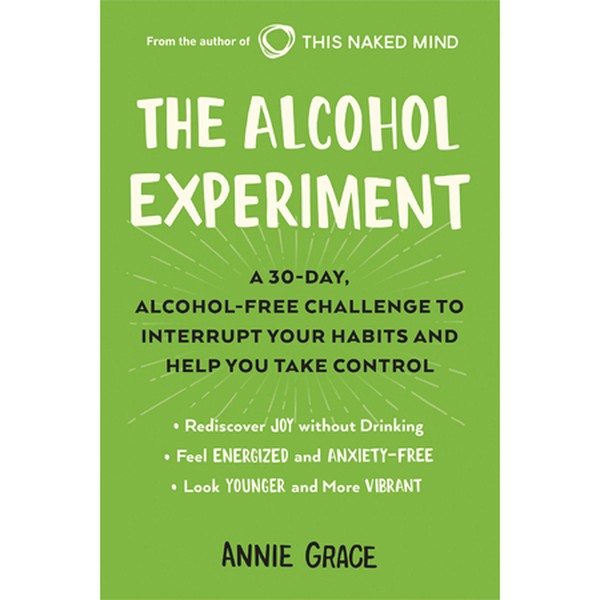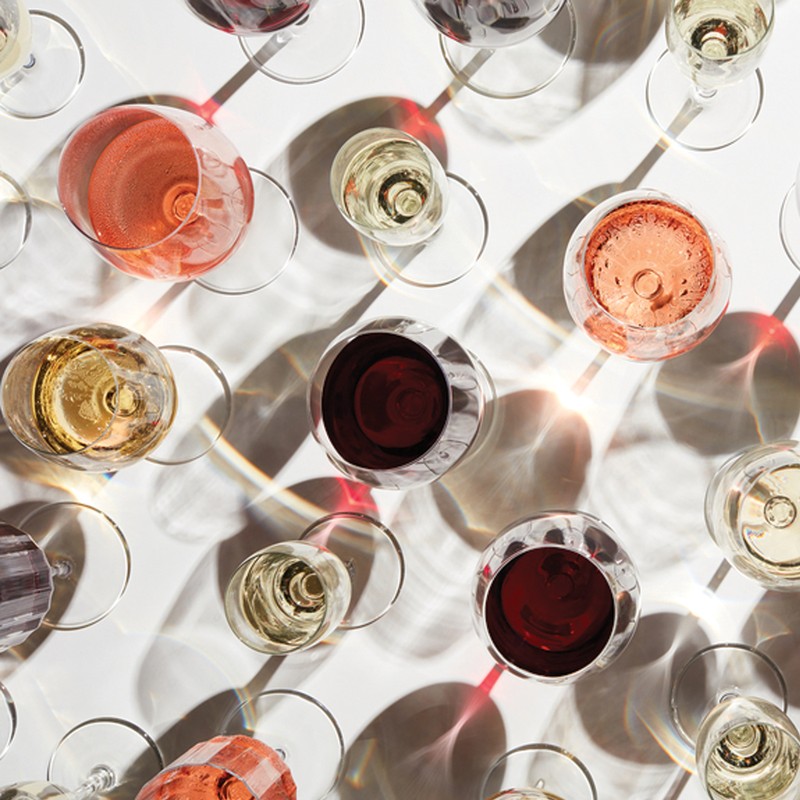11 Ways To Reduce Your Alcohol Intake
Practice The ACT Technique
Standing for awareness, clarity and turnaround, the ACT technique is key when it comes to cutting back on alcohol. Annie says: “First, name a belief you have about drinking. Then, gain clarity around that belief, looking at where it came from and how you may have picked it up without even knowing it. Finally, decide if that belief holds true through a turnaround.”
TRY THIS: Establish what belief it is you hold about alcohol (for example, ‘Alcohol makes me happy’) before evaluating it from all angles. Then, try telling yourself the opposite of that belief is the truth, and find multiple reasons why. It’s the first step in moving towards a breakthrough.
Modify Your Language
One of the fathers of modern psychology, Albert Ellis, believed the way we talk to ourselves defined our experiences. Focus on why you’re doing this and frame it as positively as possible before committing to any drastic measures. “Saying something like ‘I can’t drink’ is pretty negative,” explains Annie. “It sends all the wrong messages to your sub-conscious because it leaves you feeling deprived. Saying ‘I really love this lemonade’ is the same thing, just in a different way. You’re telling yourself you’re not going to drink alcohol, but you’re doing it in a positive way.”
TRY THIS: Regularly remind yourself how much you plan to enjoy your alternative lifestyle, as well as the potential benefits it could have on your overall health and even the people around you. Whether through notes on your phone or a daily reminder you leave on your desk, it’s important to keep positivity front and centre.
Face Your Fears
Many of us claim to drink as part of a coping mechanism, especially when it comes to dealing with chronic conditions like insomnia or extreme stress. “Sleep is critical to our mental and physical wellbeing,” explains Annie. In fact, lack of sleep has been linked to a whole host of other health conditions, including cancer, heart disease, type 2 diabetes and obesity. Because alcohol is a chemical depressant, it reduces activity in the brain, making it easier to fall asleep. That said, higher levels of blood alcohol initially act as a stimulant – which explains why alcohol and sleep simply don’t mix long-term.
TRY THIS: If you believe ‘I need alcohol to sleep’ or ‘it helps me switch-off’, try saying the opposite to yourself out loud. Come up with as many reasons as to why the first statement isn’t true to slowly dismantle your dependency.
Deal With Discomfort
Even if you don’t have a serious addiction to alcohol, it’s very common to experience side effects once you start to reduce your intake. From unexpected cravings, to heightened anxiety or stress, symptoms can range from small headaches to full-on shakes. “If you’ve been drinking heavily for a long time, your body and mind may have become physically dependent to the point where you have severe withdrawal symptoms,” warns Annie. With that in mind, try to change your mindset. “If you’re not feeling your best, cut yourself some slack,” advises Annie. “Realise that your feelings and physical symptoms are real. And do not give in to the temptation to use alcohol to numb them.”
TRY THIS: Instead of having a drink, ask yourself why you feel so tempted. Write down or record the answer in a voice note to give yourself some perspective. To fight off cravings, find a distraction – go for a walk, read a book or find something to watch on TV.
Find Your People
It’s part of human nature to want to fit in, and you shouldn’t beat yourself up for falling into bad habits as a result. The existence of mirror neurons in our brain mean it’s common to mimic other people’s behaviour – for example, when they yawn, stretch or smile. “It makes total sense that to fit in with an alcohol-obsessed society we must be drinkers,” admits Annie. “But it’s important to break that down so you can decide whether that’s something you want to continue.”
TRY THIS: Try not to preach to friends or family about your reasons for quitting alcohol. Instead, think of yourself as a positive example, showing friends you don’t need to have alcohol to have fun. And remember you don’t owe anyone an explanation – you don’t have to tell anyone your reasons for drinking less if you don’t want to.
Date Without Drinking
It can feel like a daunting prospect to head back out on the dating scene without a drink in hand. It’s possible you rely on it to feel funnier or more attractive, too. “The first thing to know about yourself is whether you are an introvert or an extrovert,” says Annie. “Some people just aren’t wired to hit the party circuit – and our culture idolises extroverts.”
TRY THIS: Take up a new hobby or join a club where socialising is high on the agenda, but drinking isn’t. Something sporty is usually best – investigate the local rowing, running or golf club to help expand your social circle beyond the boozy party circuit.
Embrace The Culture
Britain’s millennials are largely responsible for what’s been dubbed the ‘sober revolution’, which means drinking less won’t be so out of the ordinary in the long-term. “In the UK, a fifth of British adults under 25 don’t drink at all and that number is increasing,” observes Annie. So, whether it's Dry January or Sober October which kick-starts your decision to cut back, there’s bound to be a like-minded group of individuals nearby.
TRY THIS: Take a look around when you next pop by your local gym or exercise class. Chances are, most of the people there are taking their health seriously and looking to create better habits, too. Even at weekend brunch, it’s easy to see more people opting for smoothies or soft drinks over mimosas these days.
Beware The Moderation Myth
It’s easy to understand why so many of us have been fooled into thinking that drinking in moderation is good for us – especially when you take into account the hundreds of articles published extolling the virtues of a regular glass of red wine. “It’s easy to convince yourself there may be some truth to these articles because you haven’t experienced the opposite and because it makes us feel better about our choices,” explains Annie. “We believe alcohol is healthy in moderation because our friends tell us, the media tells us and scientific studies tell us it’s true.” The problem is, most of the data around increased longevity as a result of alcohol is extremely flawed. Instead, pay attention to the latest research from the World Heath Organization, which says alcohol can damage nearly every organ and system in the body and contributes to more than 60 diseases and conditions.
TRY THIS: Educate yourself. Ignore the articles written to generate likes and clicks. The more knowledge you have about the damaging side effects of alcohol, the more power you have to resist the urge to reintroduce it.
Minimise ‘Mummy Juice’
It’s easy to feel like alcohol is the answer after a long day looking after the children, but what we’re talking about is ultimately stress. “Parenting happens to be one form of stress that millions of people share, and the alcohol industry has latched onto that and targets parents, especially mums,” observes Annie. If you can’t get through the kid’s teatime without a glass of white wine, it’s a dangerous sign, says Annie.
TRY THIS: The only way to get out of the trap might be to avoid it altogether, so try not to store alcohol at home if you feel like you’re struggling to resist. Also, ask yourself what the problem’s really all about. Is your partner not doing enough? Is there a problem with your kids’ behaviour? Finding the root cause is bound to improve things for the whole family.
Stop Self-Medicating
We all drink for a variety of reasons, but it’s important to understand whether it’s down to something more sinister like boredom, sadness and even depression. Unfortunately, many of these situations end up being chicken and egg:were you more depressed before or after you used alcohol to numb the feeling? “Self-medicating with alcohol is a terrible idea,” asserts Annie. “While depression is incredibly complex, and everyone deals with it differently, alcohol only masks the problem and makes it worse.”
TRY THIS: Apply the ACT technique to think about whether alcohol makes you feel one way or another. If sadness entered your life after you cut back on drinking, that might be part of the normal withdrawal process. If it’s been there the whole time, things may well improve by going sober.
Redefine Your Happiness
Alcohol is often involved in some of the happiest occasions of our lives – birthdays, Christmas and weddings are just some of the most common examples. “It’s no wonder we believe alcohol makes us happy,” says Annie. “We see people on TV, in movies and all around us smiling and laughing while drinking.” But the pursuit of happiness is a dangerous thing because, as human beings, we always want more. Not a great sentiment where alcohol is concerned.
TRY THIS: Happiness researcher Barbara Fredrickson claims happiness is made up of joy, gratitude, serenity, interest, hope, pride, amusement, inspiration, awe and love. Consider each of these emotions in turn, and all the ways alcohol brings you happiness and takes it away. Finally, think about how happy you are right now with alcohol in your life, and what might happen as a result of cutting back.
The Alcohol Experiment is available from Waterstones.com

DISCLAIMER: We endeavour to always credit the correct original source of every image we use. If you think a credit may be incorrect, please contact us at info@sheerluxe.com.


